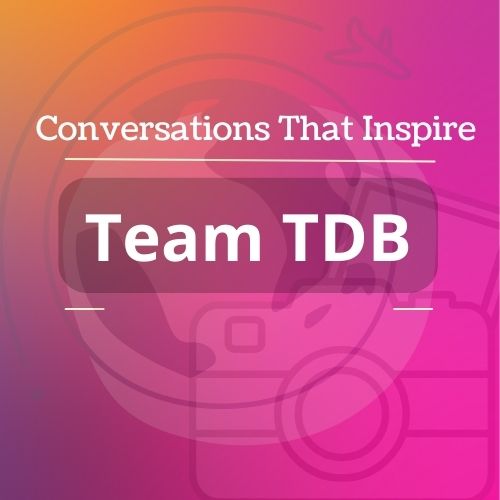During the Covid-19 pandemic, another silent pandemic was taking placing. It was going completely unnoticed because it was happening within the four walls of several homes.
With workplaces and schools closed, the lockdown forced unusual proximity with our families. The boundaries of home and work life blurred. Personal spaces seemed smaller and an unusually voluminous time had to be spent with the families, which no one was used to. One of the outcomes was the partner abuse skyrocketed. Some expressions of this abuse were overt, others covert. And partners are not even aware that they were in engaging in something that we call ‘Intimate Partner Violence’.
Intimate partner violence comes in many different forms. Let me demonstrate this through the following 4 stories that I have heard in person in my counselling practice.
Names have been changed to protect the identity.
Raj’s Story
A single dad with kids, Raj had remarried in 2018. He said “What an idiot I was. I should have spotted the warning signs!”
Whenever anything went wrong, she’d blame me.
She always felt that she was superior and had an upper hand because I was previously married and had children. While she had never been married before.
She publicly used this point to belittle me, even at big gatherings.
At home, she whenever she would get angry she would hurling objects at me.
But it actually became a living nightmare after a year of being married at the same time COVID lockdown began to hit. It was the first time her anger turned to physical abuse.
Being in the same walls with her 24X7 felt like being in jail with a cruel jailor. I kept questioning myself, what was I doing wrong? What did I do that she behaves like this with me?
I decided to confide in my mother, but only to be told, “What are you doing to make her behave that way?” I felt abandoned.
Finally I gathered the courage to come to a counsellor.
Anuradha’s Story
I was in a violent marriage for years. At first, I was naive and did not know people like him could exist. He would kick me, slap me, push me, trip me over, throw things at me, stand on my feet, yell abuse, call me names like ‘socially lame’, the list goes on and on, but he never punched me.
In fact, before we got married he used to go great lengths to tell me he could not stand men who hit their wives. These ‘wife-beaters’ would become the object of his hatred.
But then COVID lockdown happened and gradually my husband – the hater of ‘wife-beaters’ turned into one himself.
Deepa’s Story
I was in an emotionally abusive relationship, I just didn’t know it.
Everyone, including me, would have thought we are a happily married couple. In general, there really wasn’t any issue that could be spotted. But every time I would want to do something, especially related to my career, he would be discouraging. If my parents or friends would encourage me to do the same thing, he would try to cut my contact with them for the time being.
When COVID happened, he was witnessing everything I was doing in my day. Eventually, the situation became such that he commented negatively on everything I did. According to him, I wasn’t capable of anything. My confidence shattered.
This only made him reiterate his statement ‘I told you, you can’t do this’. I started having difficulty facing the world.
Jasmeet’s Story
This started as a joke, especially because I have an outgoing person and I have a lot of friends. As a result I would get a lot of calls and messages from friends and family. As soon as my phone buzzed, he would ask, who is messaging or calling.
But soon this was no longer a joke. He wanted to know everything and if he thought I wasn’t very forthcoming with information, he would start getting angry. He would go through my handbag, my text messages and sometimes even my cupboards when I was at work.
I had absolutely no privacy. As the lockdown started getting lifted, my work started with 2 times a week at office. When this happened, i accidentally discovered that my phone had spyware. My messages and calls were visible to my husband.
Not that i had anything to hide, but I felt deeply violated.
These are not stories to demonstrate that we cannot live with each other for more than a few hours a day. Or there is only a certain length of time that we can love each other post which the love begins to dissolve over extended periods of togetherness.
The fact is that whatever is the underlying emotion, feeling, attitude that will propel a certain a process within the relationship, it gets accelerated when we are forced together for long durations. Its like this. These couples needed 500 hours of togetherness to reach this stage. Now instead of these 500 hours spreading over 5 years, they just happened over 8-10 months because of the lockdown.
Intimate partner violence can come in so many shades – sometimes they are hard to miss but other times they are so subtle that it can be hard to recognise.
Here is quick guide to check if you are someone you know might in an abusive relationship:
For the ease of reading and understanding, lets divide it into 7 categories:
- Physical abuse: Overt forms of physical abuse are hitting, kicking, pinching, pulling hair, hurling objects and so on. What we might be unfamiliar with are the more subtle forms this abuse comes in. Examples are destruction of your property, asking you to get up while you are having your meal. Or waking you up while you are asleep, kicking the wall to show anger. Or blocking your way when you clearly want to leave the room.
- Control and shame: Controlling conversations to make you feel ashamed of your inadequacies and this is another path to feel more powerful. Threats which are coercions such as ‘Do this or else..’. Or trying to monitor your whereabouts. The subtle form of this is expecting you to respond to their calls and messages immediately else they showcase anger. Demanding to know your cell phone and mail passwords and they will perhaps go through your call, text and internet browsing history. They will take decisions by themselves that clearly concern both the parties such as going somewhere or closing a joint bank account.
- Emotional Abuse: If your partner insults you, criticises constantly, withholds affection, distorts statements to give another meaning to reality to create confusion or insecurity, exploits your vulnerability or insecurity. Or they engage in other behaviours to undermine the your self-confidence, public humiliation. Threatening to kill you or themselves, or both. Disregarding your requests, telling you that you are unstable, forcing you to take alcohol or drugs.
- Sexual Abuse: Sexual abuse is using sex in an exploitative way or forcing sex. Just because you have had sex in the past does not indicate current consent. Sexual abuse may involve both verbal and physical behavior. This may include using force, coercion, guilt, or manipulation or not considering your desire to have sex. This may also include – forcing you to have sex with others, have unwanted sexual experiences. Or engaging sexual activity while you are asleep, intoxicated, drugged, etc. Body shaming – making fun of your body, exhibiting excessive jealousy resulting in false accusations of infidelity or withholding sex as a control mechanism.
- Isolation: Isolation is a form of abuse which is much like controlling behaviours. Keeping you from seeing or doing what you want or controlling how you think and feel. Keeping you socially isolated. They will control you from being in contact with the world which might not reinforce their perceptions and beliefs. They will make isolation seem like intense love like “if you really loved me you should spend time with me, not your family”. When isolation expands, limiting or excluding your contact with anyone but them. Eventually, you will feel like you are left totally alone.
- Verbal Abuse: Verbal abuse is any abusive language used to denigrate, embarrass or threaten. This may include: Threatening to hurt or kill you or the children, family, pets, property or damage reputation. Name calling such as ‘Stupid, dumb etc’. Saying you are unattractive or undesirable. Or screaming, rampaging or refusing to talk. Or even constantly blaming you for things going wrong.
- Economic Abuse: They try to control you through manipulation of economic resources. Some examples include controlling the family income and either not allowing access to money or rigidly limiting access to family funds, keeping financial secrets or hidden accounts, putting the you on an allowance or and asking you for an account for every penny spent.
What to do in this this situation.
The first thing is to trust your instincts. If you are feeling mentally or emotionally abused, then you probably are.
If you fear any immediate violence, you can contact your local authorities.
There is absolutely no reason to live in fear. Do know that you have the power to change your situation, if you really want to.
The abuse thats going on, is not your responsibility. And trying to reason with your abuser is not going to change the situation, because he/she probably does not think that he/she is engaging in abusive behavior.
Move away from the situation temporarily and then evaluate the situation. Approach a counsellor who can help you recover and re-engage in an emotionally healthy life.
Shruti Varma is a Counselling Psychologist. She is a Wharton School, University of Pennsylvania Alumnus. Having held several leadership positions in various MNCs, Shruti is a leading Counsellor, Coach and Trainer in Emotions Management and Emotional Intelligence. Having been a practitioner of Yoga, she combines Yogic Sciences in her Counselling practice, Coaching as well as Trainings.






















